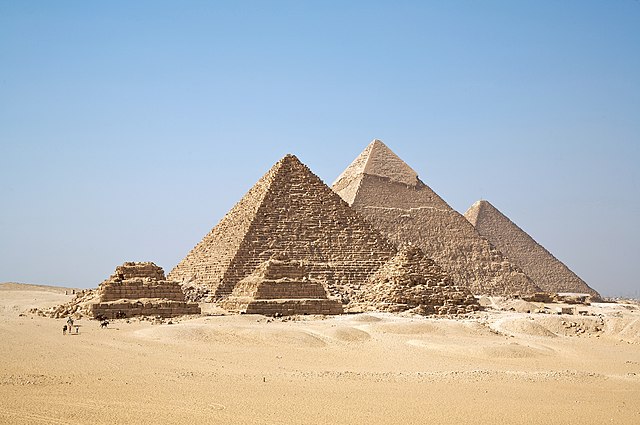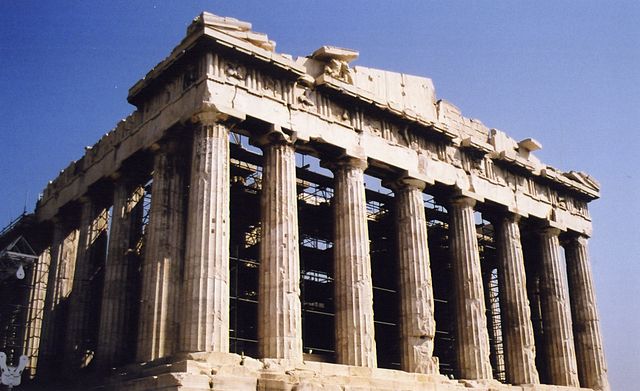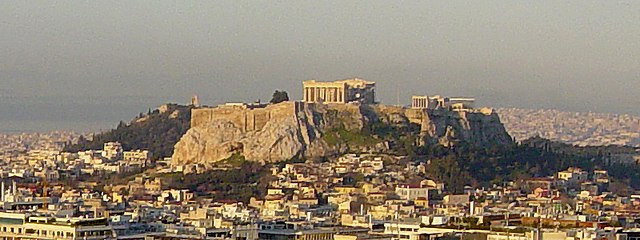A cradle of civilization is a location and a culture where civilization was developed independent of other civilizations in other locations. The formation of urban settlements (cities) is the primary characteristic of a society that can be characterized as "civilized". Other characteristics of civilization include a sedentary non-nomadic population, monumental architecture, the existence of social classes and inequality, and the creation of a writing system for communication. The transition from simpler societies to the complex society of a civilization is gradual.
Among the various cradles of civilization is Ancient Egypt. Pictured are the Giza Pyramids.
Image: Lightmatter colosseum
Image: Acropolis of Athens 01361
A civilization is any complex society characterized by the development of the state, social stratification, urbanization, and symbolic systems of communication beyond natural spoken language.
The ancient Sumerians of Mesopotamia were the oldest civilization in the world, beginning about 4000 BCE.
Ancient Egypt provides an example of an early culture civilization.
The End of Dinner by Jules-Alexandre Grün (1913). The emergence of table manners and other forms of etiquette and self-restraint are presented as a characteristic of civilized society by Norbert Elias in his book The Civilizing Process (1939).
The Acropolis of Athens: Greece is traditionally seen as the cradle of a distinct European or "Western" civilization.







